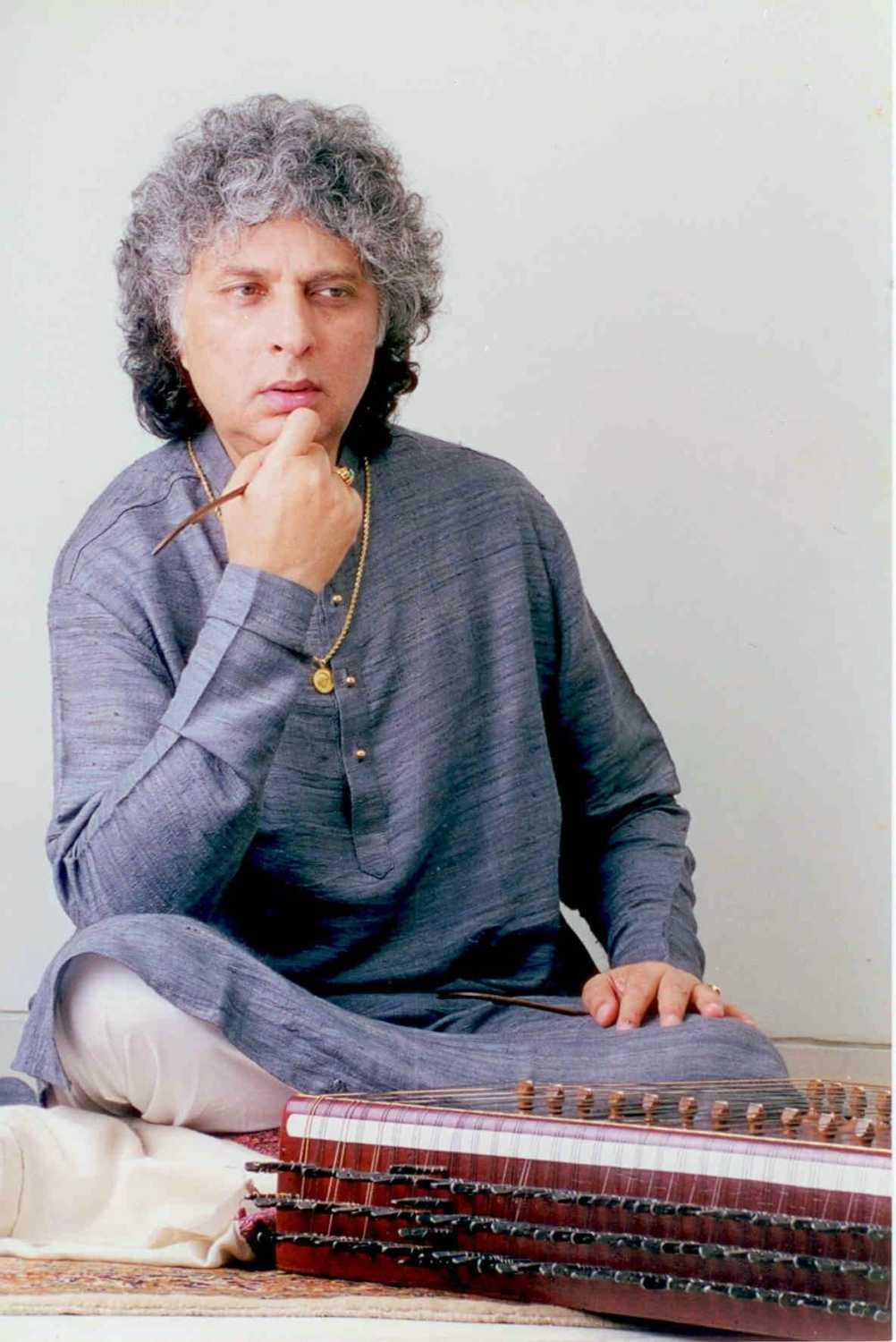We examine the famed musician's pairing with Hariprasad Chaurasia for Hindi cinema on Sharma's 79th birthday today (13 January).
Birthday special: The Hindi film compositions of Pandit Shivkumar Sharma
Mumbai - 13 Jan 2017 9:00 IST


Sonal Pandya
Esteemed santoor player, Pandit Shivkumar Sharma, has had quite a musical career. He started playing the instrument at the age of 13 on his father's suggestion and became a preeminent santoor player in the country. His contact with the film world began with him composing the background score of Jhanak Jhanak Payal Baje (1955) under Vasant Desai and continued with him playing the tabla for RD Burman in 'Saiyaan Beimaan' in Guide (1966). Sharma has composed many classical albums over the years but is mostly known to film fans for his collaboration with fellow musician Hariprasad Chaurasia as the composer duo Shiv-Hari. The compositions stood out in a decade when melody and harmony were thought to be lost.
Silsila (1981)
Their first film as composers for filmmaker Yash Chopra yielded great classics like 'Rang Barse', 'Yeh Kahaan Aa Gaye Hum', 'Sar Se Sarke' and the eternal romance number 'Dekha Ek Khwab' shot in the tulip fields of Netherlands and the valleys of Kashmir. The songs were written by Javed Akhtar, Harivanshrai Bachchan, Rajinder Krishan, Nida Fazli and Hasan Kamal. This was the first time that Chopra was working with another lyricist besides Sahir Ludhianvi. Shiv-Hari received their first ever Filmfare Award for Best Music but lost out to Khayyam's memorable compositions for Umrao Jaan (1981). More than 35 years after the film faltered at the box-office, the music of Silsila by Shiv-Hari is still cherished around the world.
Faasle (1985)
For their second outing as composers, the classical musicians once again reunited with Chopra who given them their first break. For awhile, it seemed like they exclusively worked with Chopra as director. The film had an all-star cast of Sunil Dutt, Rekha, Farooq Shaikh and Deepti Naval. It was the launch pad for two newcomers, Farha, the niece of Shabana Azmi and Rohan Kapoor, the son of singer Mahendra Kapoor. The songs of Faasle, though lovely, failed to make a dent like the film at the box-office. The illustrious Urdu poet, Shahryar who was also known as Akhlaq Mohammed Khan, wrote the lyrics.
Vijay (1988)
Yash Raj Films' Vijay (1988), with a plot similar to Trishul (1978), was another ensemble cast with Rajesh Khanna, Hema Malini, Rishi Kapoor, Anil Kapoor, Meenakshi Seshadri and Raj Babbar. Despite the story of the film being more action-oriented, Chopra retained the soulful sounds of Shiv-Hari for Vijay. The songs of the film were written by yet another Urdu poet, Nida Fazli, and shot abroad in director Chopra's favourite outdoor location, Switzerland. Unfortunately, Vijay's songs failed to connect with the audience despite being ably composed by Shiv-Hari and picturised in scenic Switzerland.
Chandni (1989)
That wasn't the case with Shiv-Hari's next assignment with Chopra, the ethereal Chandni (1989). Yash Raj Films bounced back after the losses of Faasle (1985) and Vijay (1988) with the National Award-winning production for Best Popular Film of 1989. The soundtrack of Chandni was a colossal success with chart-topping songs such as 'Mere Haathon Mein', 'Chandni O Meri Chandni' and 'Mitwa' written by Anand Bakshi. Chaurasia himself contributed to the album by playing the flute in the opening intro of 'Mitwa'. The duo earned their second Filmfare nomination for Best Music Director, but once again narrowly lost out, this time to Raam Laxman for his breakthrough music on Maine Pyar Kiya (1989).
Lamhe (1991)
Shiv-Hari and Bakshi once again came together for Chopra on Lamhe (1991). They expanded on the instrumental theme they explored first in Chandni (1989) and turned it into the full-fledged number 'Kabhi Main Kahoon' picturised on Anil Kapoor and Sridevi. Lamhe's song were all indelible from the Rajasthani-inspired folk tunes, 'Chudiyan Khanak Gayee' and 'Megha Re Megha' to the soothing lullaby 'Gudiya Rani', all sung by Lata Mangeshkar. The popularity of the music, however, couldn't save the film from connecting with audiences at the box-office with its May-December romance plotline. Twenty-five years later, though, the film is considered a cult classic and the film's music still resonates today.
Parampara (1993)
Chopra directed his next film, Parampara (1993) for an outside production house, but brought along his regular collaborators Shiv-Hari and Bakshi. Parampara marked the film debut of actors Saif Ali Khan and Ramya. Unfortunately, the film was a box-office disaster and is considered a weak spot for the careers of Chopra and star Aamir Khan. The six songs from the soundtrack never quite made its mark with moviegoers either.
Sahibaan (1993)
For the first-time pairing of Rishi Kapoor and Madhuri in Sahibaan (1993), Shiv-Hari produced seven symphonious tunes for director Ramesh Talwar, a former assistant director of Chopra's. The film's romantic title song 'Sahibaan Meri Sahibaan' was influenced by Husnlal-Bhagatram's song 'Sun Mere Sajna' from 1953's Ansoo starring Kamini Kaushal, Shekhar and Pran. The soundtrack and the film both were a hit with the public and at the box-office.
Darr (1993)
For Chopra's intense love triangle Darr (1993) starring Sunny Deol, Shah Rukh Khan and Juhi Chawla, he got together once again with composers Shiv-Hari to create one of best music albums of 1993. With six songs consisting of popular tunes written by Bakshi such as 'Tu Mere Saamne', 'Jaadu Teri Nazar' and 'Ang Se Ang Lagana', the film was a super-hit, boosted by its likeable soundtrack. The duo got their third and final Filmfare nomination for Best Music Director. They were beaten by another Shah Rukh film, Baazigar (1993), with music composed by Anu Malik. Darr was also the last time Shiv-Hari worked with Chopra or any other director as music composers and went back to their busy careers as classical instrumentalists. To date, Pandit Shivkumar Sharma has over 100 classical music recordings to his name.










